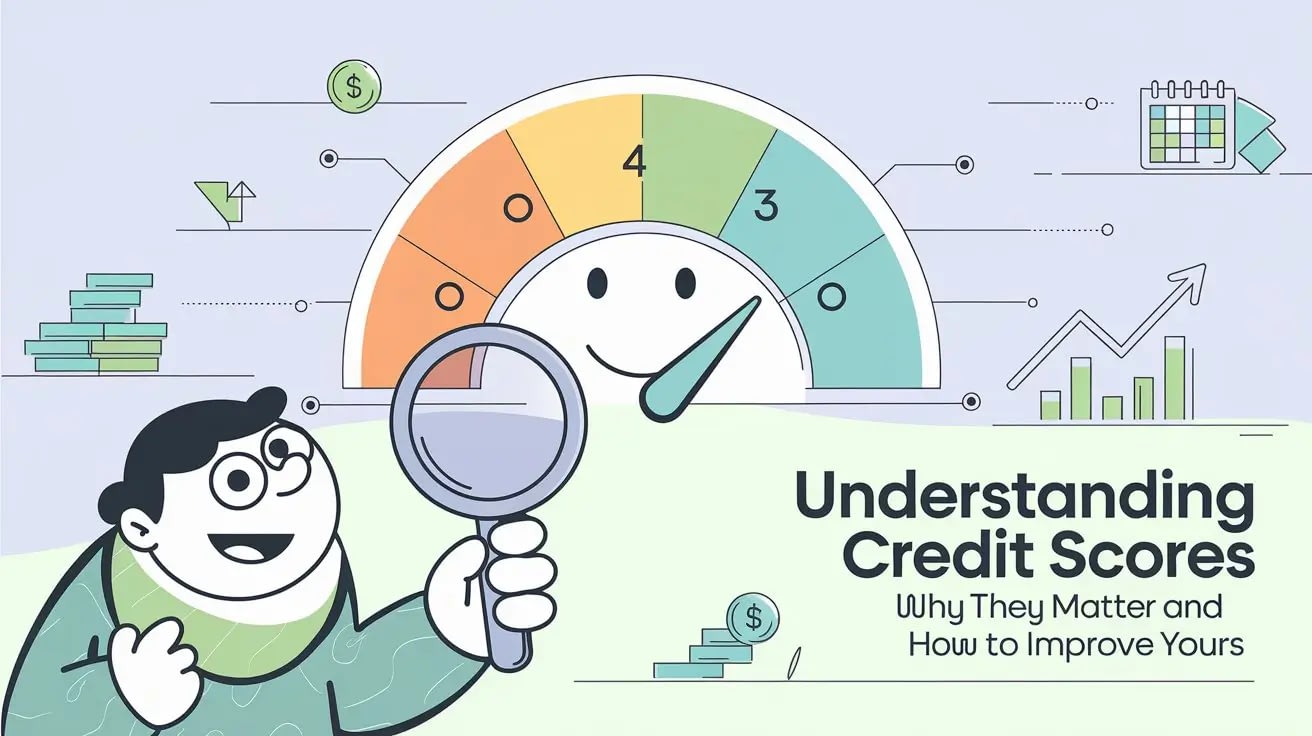In the world of personal finance, your credit score is one of the most important numbers you’ll ever encounter. Whether you’re applying for a loan, renting an apartment, or even securing a job, your credit score can play a pivotal role. But what exactly is a credit score, and why does it matter so much? More importantly, how can you improve yours? Let’s dive in.
What Is a Credit Score?
A credit score is a three-digit number that represents your creditworthiness. It’s essentially a measure of how likely you are to repay borrowed money. Lenders, landlords, and even some employers use this number to assess financial responsibility.
Credit scores typically range from 300 to 850, with higher scores indicating better creditworthiness. Here’s a general breakdown:
- Excellent (800-850): Exceptional credit management.
- Very Good (740-799): Low risk to lenders.
- Good (670-739): Average risk.
- Fair (580-669): Subprime borrowers.
- Poor (300-579): High risk to lenders.
Why Does Your Credit Score Matter?
- Loan Approval: A higher credit score increases your chances of getting approved for loans and credit cards.
- Lower Interest Rates: Good credit scores often qualify you for lower interest rates, saving you money over time.
- Better Financial Opportunities: A good credit score can open doors to better housing, insurance premiums, and even job offers.
- Emergency Preparedness: Having access to credit can provide a financial safety net in emergencies.
What Affects Your Credit Score?
Credit scores are calculated using several factors, each with varying levels of importance:
- Payment History (35%): Whether you pay your bills on time.
- Credit Utilization (30%): The amount of credit you’re using compared to your credit limit.
- Length of Credit History (15%): How long you’ve had credit accounts.
- Credit Mix (10%): The variety of credit types you have (e.g., loans, credit cards).
- New Credit (10%): The number of recent credit inquiries and new accounts.
How to Check Your Credit Score
You can access your credit score through various channels:
- Free Credit Reports: The Fair Credit Reporting Act (FCRA) allows you to request a free credit report from each of the three major credit bureaus—Experian, Equifax, and TransUnion—once a year at AnnualCreditReport.com.
- Credit Card Companies: Many credit card issuers offer free credit score tracking for their customers.
- Credit Monitoring Services: Some services provide credit score updates, monitoring, and alerts.
Steps to Improve Your Credit Score
Improving your credit score doesn’t happen overnight, but with consistent effort, it’s achievable. Here’s how:
- Pay Your Bills on Time: Late payments significantly hurt your score. Set up reminders or automatic payments to avoid missing due dates.
- Reduce Credit Card Balances: Aim to keep your credit utilization ratio below 30% of your total credit limit.
- Avoid Opening Too Many Accounts: Multiple credit inquiries in a short period can lower your score.
- Don’t Close Old Accounts: Length of credit history matters, so keep older accounts open, even if you don’t use them.
- Dispute Errors: Review your credit report for inaccuracies and dispute any errors with the credit bureau.
- Diversify Your Credit: A mix of credit types (e.g., installment loans, revolving credit) can boost your score.
The Role of Credit Bureaus
The three major credit bureaus—Experian, Equifax, and TransUnion—compile your credit information. They calculate your credit score using models like FICO and VantageScore. Each bureau may have slightly different information, which can lead to variations in your scores.
Common Credit Score Myths
- Checking Your Score Hurts It: Soft inquiries, such as checking your score, don’t affect your credit.
- You Need to Carry a Balance: Paying your balance in full each month is better than carrying a balance.
- Only Big Purchases Matter: Even small missed payments can harm your score.
Why Credit Scores Can Drop
Credit scores can decline for several reasons, including:
- Late or missed payments.
- High credit utilization.
- Closing old accounts.
- Applying for too much credit at once.
- Errors on your credit report.
Conclusion
Understanding your credit score is essential for financial health. It’s not just a number; it’s a reflection of your financial habits and responsibility. By taking proactive steps to improve and maintain a good credit score, you’ll unlock opportunities that can save you money and enhance your quality of life.
Start today by checking your credit report, identifying areas for improvement, and committing to responsible financial habits. Remember, building and maintaining a good credit score is a marathon, not a sprint. With time and discipline, you can achieve excellent credit and enjoy the benefits it brings.








